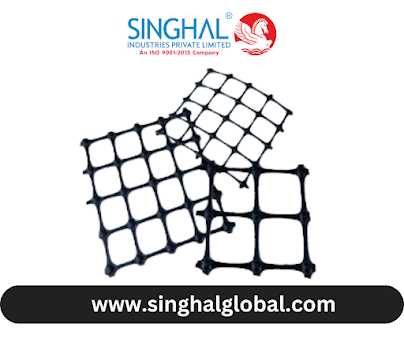Choosing the Right Garbage Bag for Your Needs: A Comprehensive Guide
In today's world, where sustainability and efficient waste management are critical, choosing the right garbage bag is more important than ever. Whether you are managing waste at home, in an office, or in an industrial setting, the right garbage bag can make a significant difference in terms of durability, cost-effectiveness, and environmental impact. This comprehensive guide will help you navigate the various options available and choose the best garbage bag for your needs.
Understanding Garbage Bag Materials
Garbage bags are made from a variety of materials, each with its own set of advantages and disadvantages:
Plastic (HDPE, LDPE): High-density polyethylene (HDPE) and low-density polyethylene (LDPE) are the most common materials used for garbage bags. HDPE bags are strong, puncture-resistant, and cost-effective, making them ideal for heavy or sharp waste. LDPE bags are more flexible and tear-resistant, suitable for lighter, bulky items.
Biodegradable Plastics: These bags are made from materials that can decompose naturally in the environment. They are an excellent choice for those looking to reduce their environmental footprint. However, they may not be as strong as traditional plastic bags.
Compostable Bags: Made from organic materials like cornstarch, compostable bags are designed to break down in composting facilities. They are an eco-friendly option for organic waste but may not be suitable for all types of waste.
Recycled Plastics: Bags made from recycled plastics help reduce waste and conserve resources. They offer a balance between strength and environmental responsibility.
Factors to Consider When Choosing Garbage Bags
When selecting garbage bags, consider the following factors:
Size and Capacity: Garbage bags come in various sizes, from small bags for household use to large industrial-sized bags. Ensure you choose a size that fits your waste bin and meets your waste disposal needs.
Strength and Durability: Depending on the type of waste you are disposing of, you may need bags that are puncture and tear-resistant. For heavy or sharp waste, opt for thicker, stronger bags.
Closure Type: Some garbage bags come with drawstrings, flaps, or twist ties for easy closure. Choose a type that is convenient for you and prevents spills and odors.
Environmental Impact: If sustainability is important to you, look for biodegradable, compostable, or recycled plastic bags. These options help reduce your environmental footprint.
Color Coding: Different colors can be used to separate types of waste, making it easier to manage recycling and disposal. For example, green garbage bags for organic waste, blue for recyclables, and black for general waste.
Garbage Bag Prices
Garbage bag prices vary depending on material, size, and thickness. The Garbage Bag Price Per Kg can range from a few dollars for standard plastic bags to higher prices for biodegradable or compostable bags. Bulk purchases typically offer better value for money.
Types of Garbage Bags
Green Garbage Bags: Often used for organic or garden waste, green garbage bags are available from exporters like Singhal Industries. These bags are ideal for composting and environmentally friendly waste disposal.
Blue Garbage Bags: Blue bags are commonly used for recyclables, such as paper, plastic, and metal. Suppliers like Singhal Industries offer durable blue garbage bags that help streamline the recycling process.
Black Garbage Bags: These are the most common and versatile garbage bags, used for general waste. They are available in various sizes and strengths to suit different needs.
Clear Garbage Bags: Ideal for situations where you need to see the contents, clear garbage bags are often used in offices and commercial settings for transparency and ease of sorting.
Choosing the Right Supplier
When purchasing garbage bags, it's essential to choose a reputable supplier. Singhal Industries is a leading manufacturer and Green Garbage Gags Exporter of high-quality garbage bags. They offer a diverse range of products, including green garbage bags for organic waste, blue garbage bags for recyclables, and durable black garbage bags for general waste. Their commitment to quality and sustainability makes them a preferred choice for many customers.
Conclusion
Choosing the right garbage bag involves considering various factors such as material, size, strength, and environmental impact. By understanding your specific needs and the available options, you can make an informed decision that ensures efficient waste management and supports sustainability goals. Whether you need biodegradable bags for your home or durable bags for industrial use Blue Garbage Bags Supplier like Singhal Industries have the right products to meet your requirements.
Frequently Asked Questions (FAQs)
Q: How do I determine the right size garbage bag for my bin?
A: Measure the circumference and height of your bin. Choose a bag with a width equal to half the bin's circumference and a height equal to the bin's height plus a few inches for overhang.
Q: Are biodegradable garbage bags really better for the environment?
A: Biodegradable bags decompose faster than traditional plastic bags, reducing long-term environmental impact. However, they still require proper disposal conditions to break down effectively.
Q: What is the difference between biodegradable and compostable bags?
A: Biodegradable bags break down over time under natural conditions, while compostable bags require specific composting conditions to decompose and return to the soil as nutrients.
Q: Can I use recycled plastic bags for all types of waste?
A: Recycled plastic bags are generally suitable for most types of waste. However, for very heavy or sharp waste, you may need thicker, more durable bags.
Q: Where can I buy high-quality garbage bags?
A: Companies like Singhal Industries offer a wide range of garbage bags, including green, blue, and black options, catering to various waste disposal needs.
.jpg)

.png)
Comments
Post a Comment